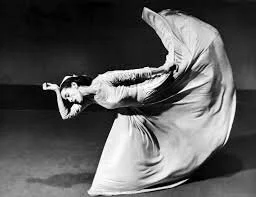I believe that we learn by practice. Whether it means to learn to dance by practicing dancing or to learn to live by practicing living, the principles are the same….One becomes, in some area, an athlete of God.
Martha Graham
It is difficult to talk about what schools ought to be in the same words we have learned in the schools we are used to. This old language is tied to ideas and assumptions so familiar that we can hardly think outside them. We take for granted our definitions of student, teacher, and school—as though they were as obvious and fixed as the meaning of a chair or a hammer. To open up our way of thinking about schools, we need to open up the ways we talk about them. And as school leaders, this re-imagination is especially crucial. No matter how small each may be individually, every choice we make—about hiring, or curriculum, or fundraising—remakes our school, and thus constitutes a chance to bring it closer to our dream of what it might someday become.
I dream of a school where students do something much better than what young people typically do in school. I am not interested in building a smooth machine that keeps everyone in it—students, teachers, staff—going through the motions that keep the wheels spinning. I want our students to do real work. Hard work. But in school, hard work too often means meaningless work: many directions to follow, lots of mistakes to avoid. Too much memory and too little mind. A great deal of note-taking and too little sense-making. And love has little to do with any of it. I am aiming for something different: for students to do the kind of work that people do because they have learned to love it—not because they have been made to do it. I want to see students who work so intensely that the world outside the essay or sculpture or experiment before them seems muffled and far away. I want this work to leave them sweaty and exhausted and proud. I want our students to take their work home not because somebody told them that it is homework, but because they cannot leave it behind, because they are not done with it yet. I want their work to be like play, and this play to be like when a real athlete is entirely immersed in her game or a serious musician gets perfectly lost in his music.
I want our students to learn the discipline required to accomplish good work, the care needed to shape brilliant possibilities into precise actuality. At first, this discipline may come from the school’s expectations; ultimately, it must be driven by each student’s understanding of what the work deserves. I want our students to lean toward the challenge of a harder book or a more difficult equation—for the chance it offers to prove that they can do better this time than they did the last: to show that who they are today is not just who they were yesterday.
I see this school in a half-daydream: teachers committed like priests to the gods of their discipline (of physics, or poetry, or architecture); whose devotion, though, does not take them out of the world, but into it: math teachers who see that everything around them is made of numbers, history teachers who know that who we are depends entirely on what happened before we arrived, science teachers who secretly believe that chemistry is the only way to get at what matters most. And their commitment to these disciplines transforms these teachers in the same way that a marathon runner is made thin and swift by her training—and a swimmer, through his “discipline,” grows wide-shouldered and at ease underwater. When I imagine their classrooms, I see teachers wrapped in robes as brilliant as those the monks in Thailand wear, whirling round like dervishes. Outside the doorways lie a pile of robes the same color for students to slip on as they enter (indigo for the poetry room, and scarlet by the door where math happens). The students walk in and soon they are dancing, too, trying out what it is like to give themselves up to a historian’s passion, or to use their body like a painter does. The students leave and drop their robes outside; but maybe the color has rubbed off a little, and when they graduate they’re smeared with crimson and aquamarine: painted like Joseph’s coat from dreaming. Or maybe it is their eyes that sometimes see the world through science-colored lenses, or make historical sense of what just happened. Or maybe it is their ears that hear more keenly the world’s insistent whisper: Watch closely. Figure me out.
